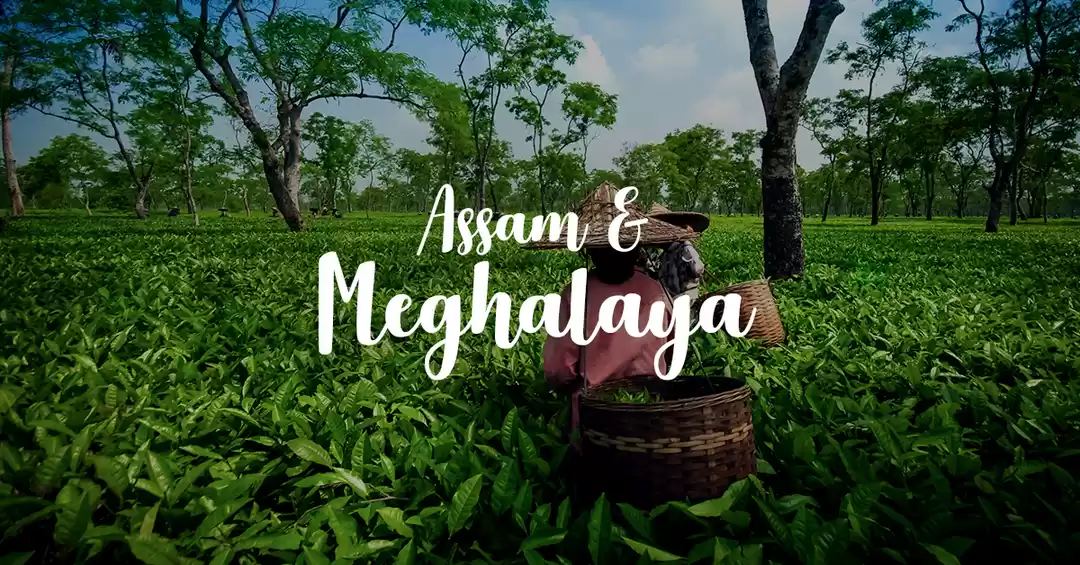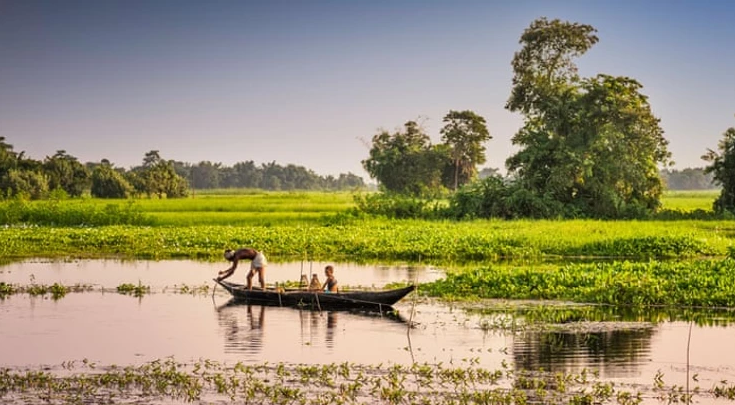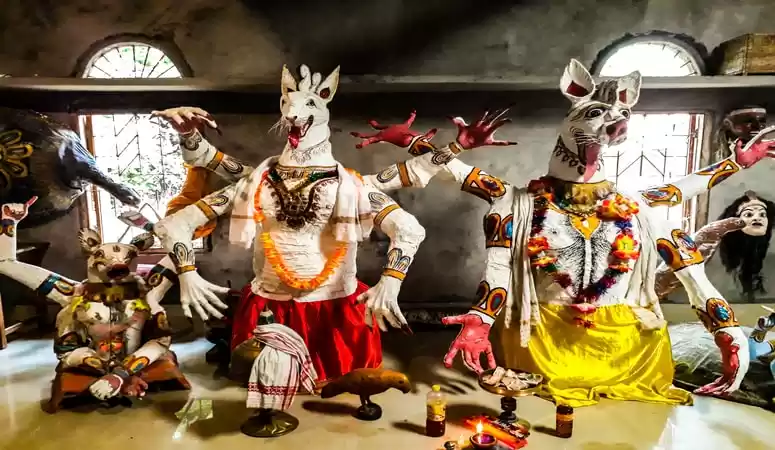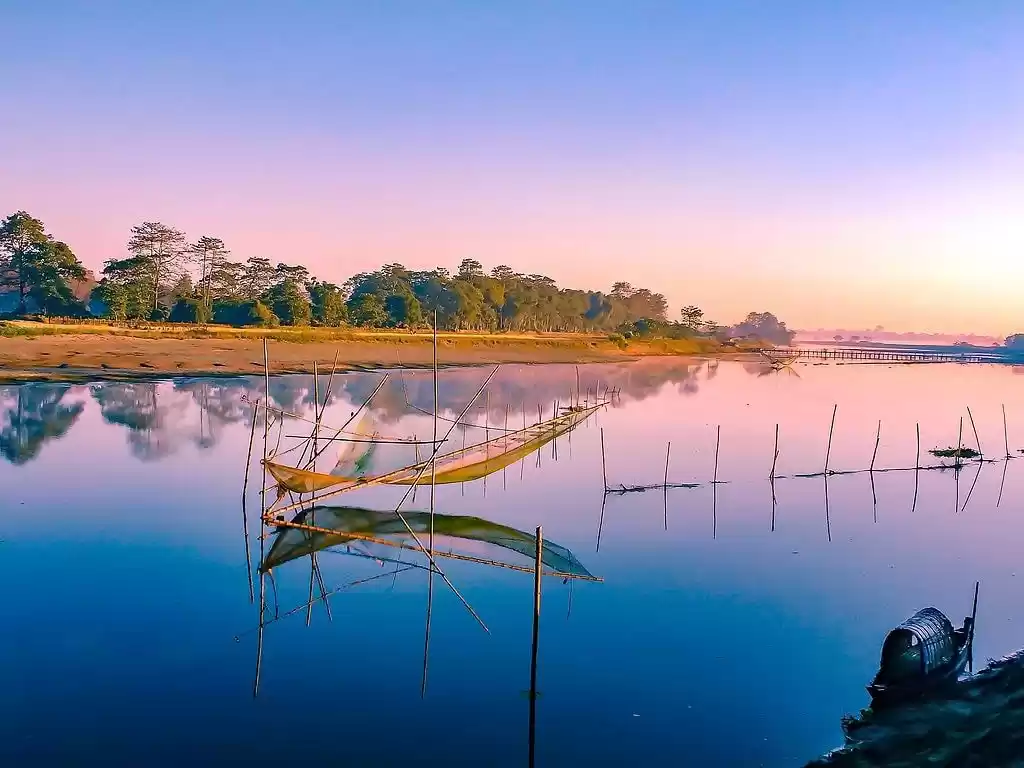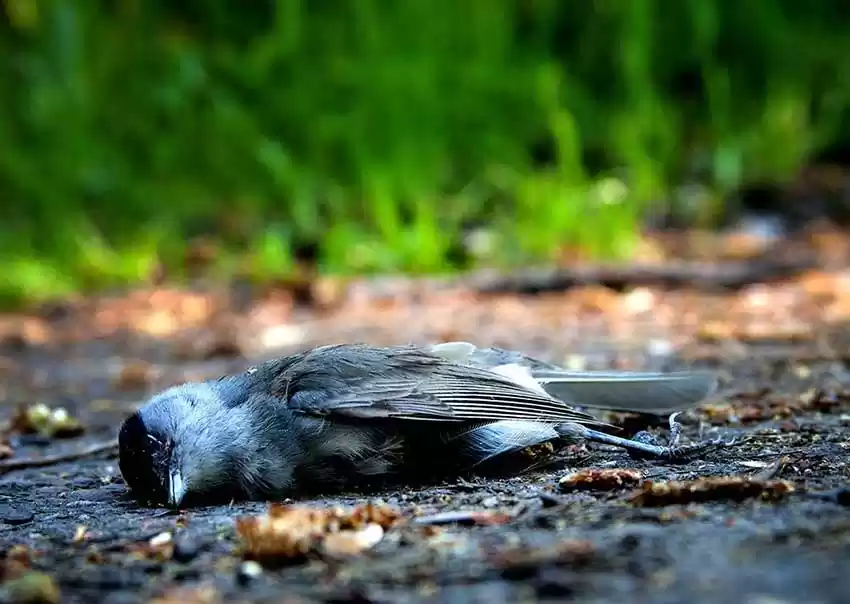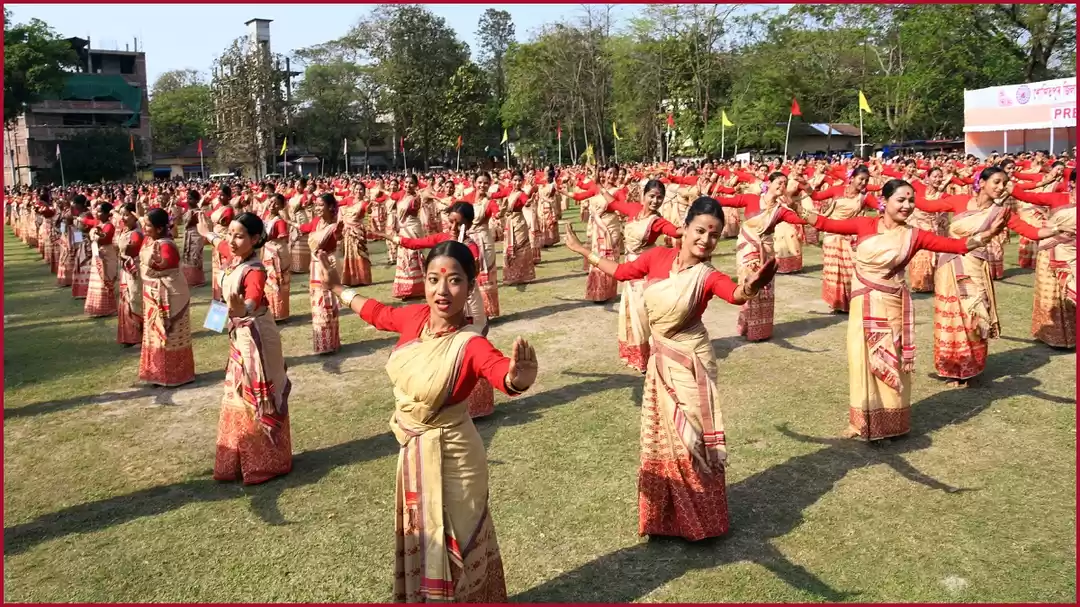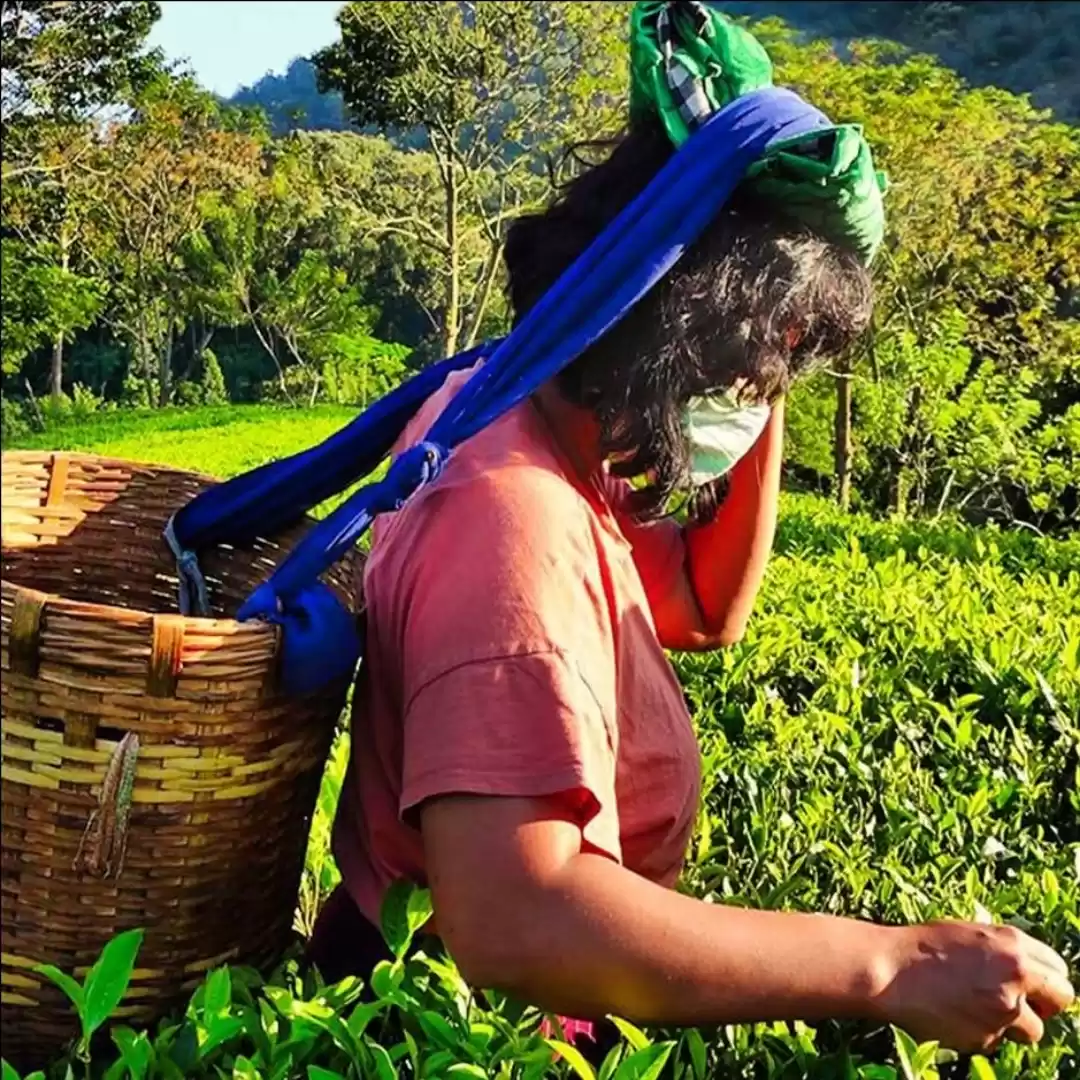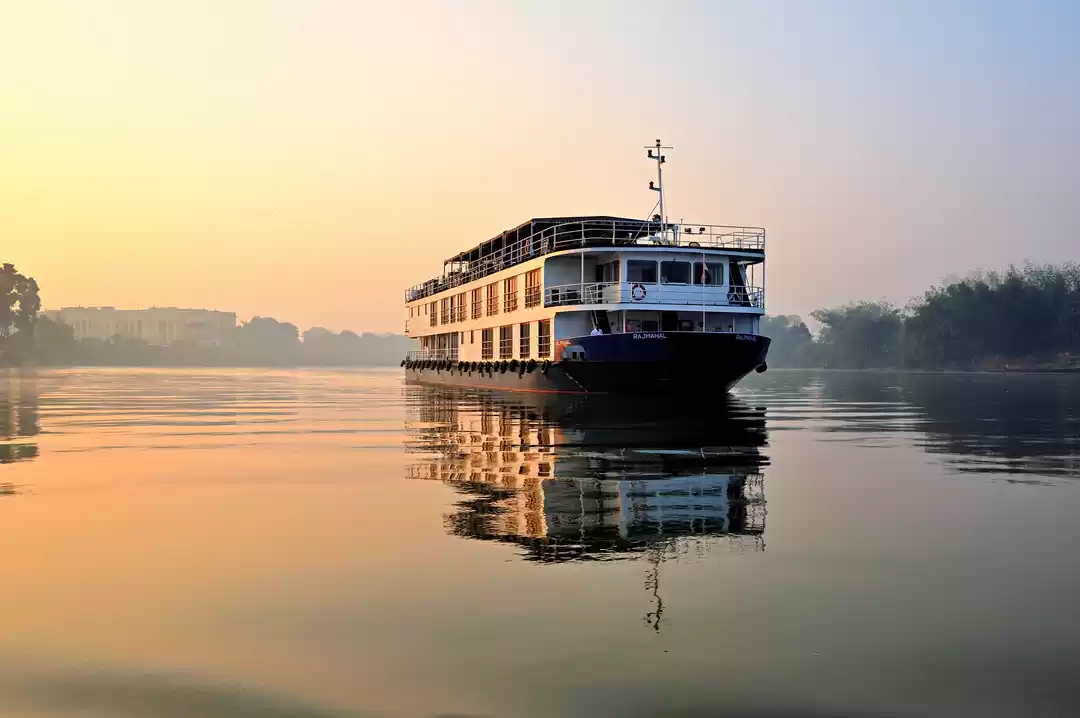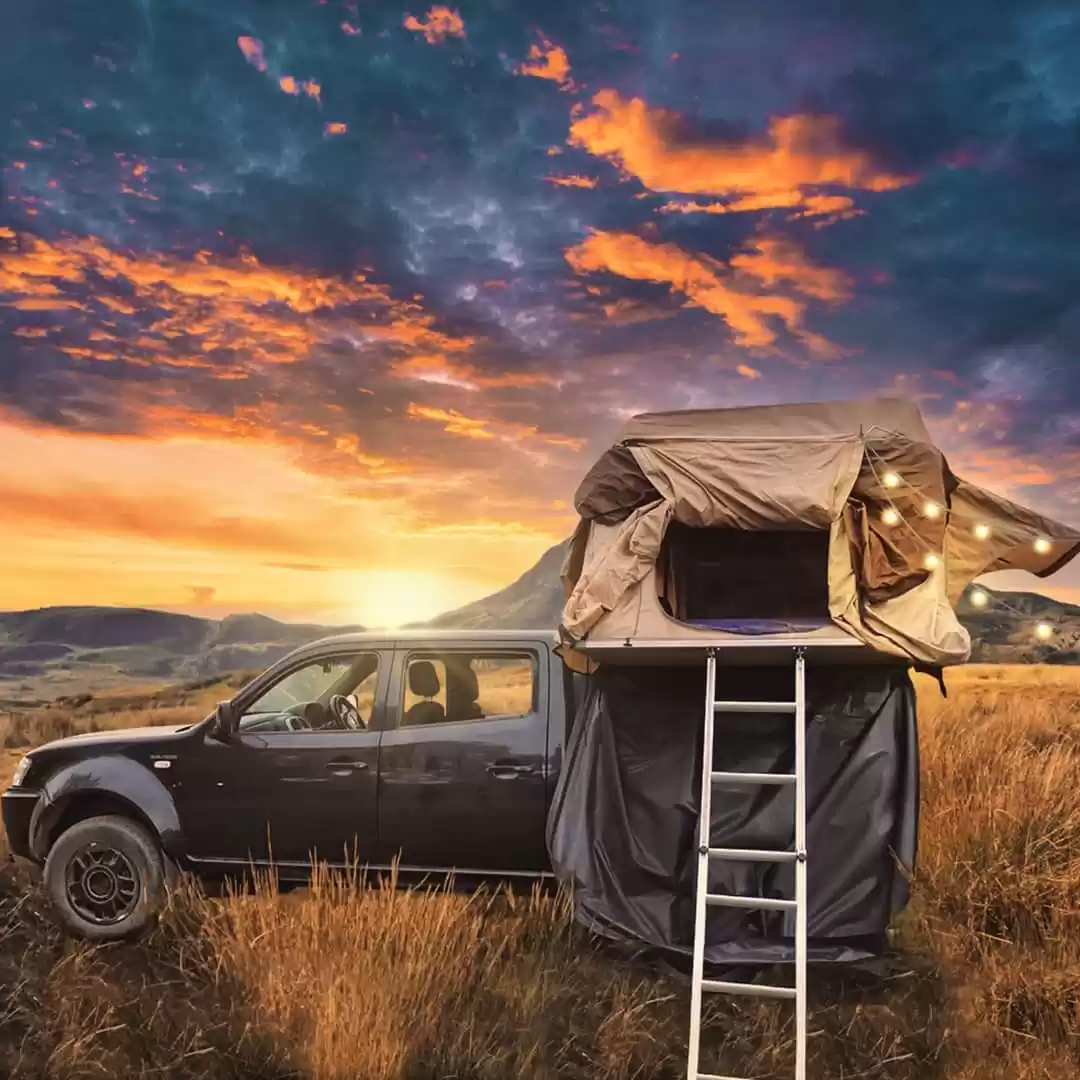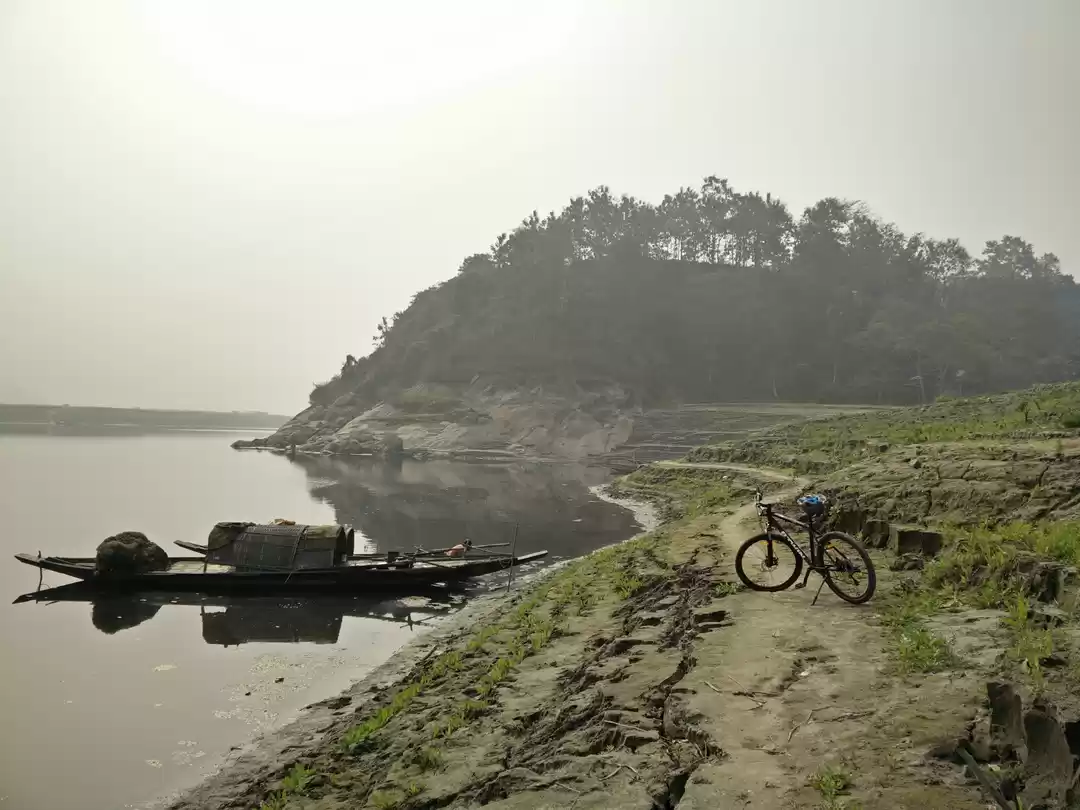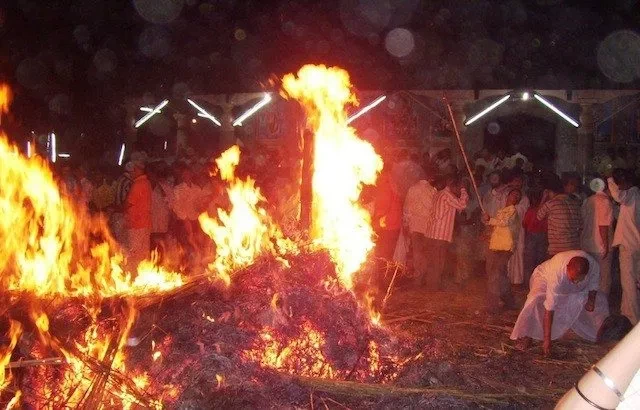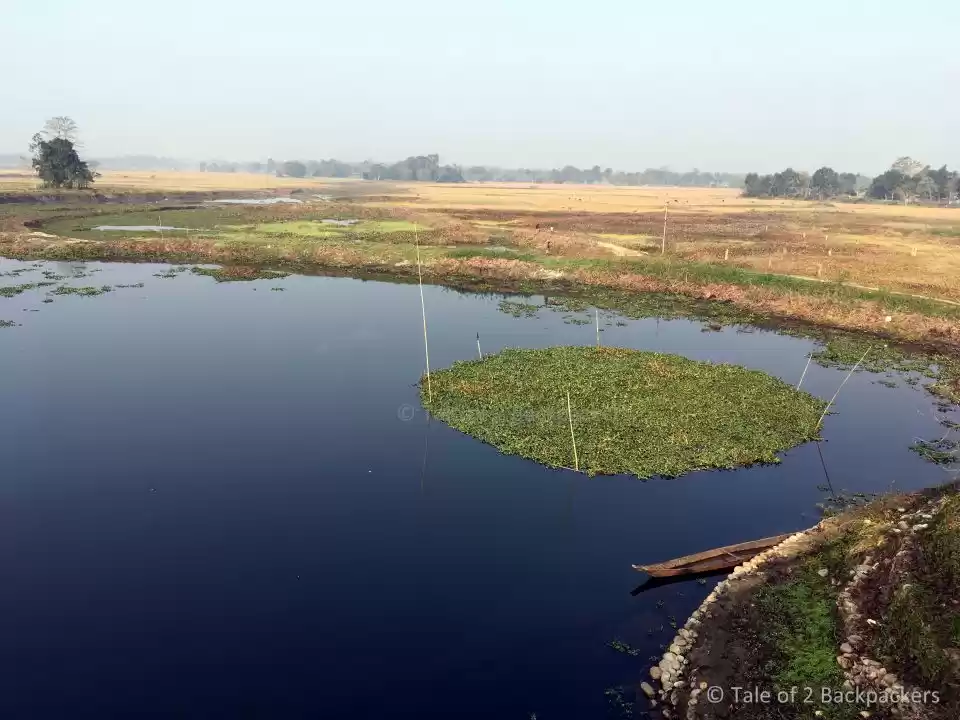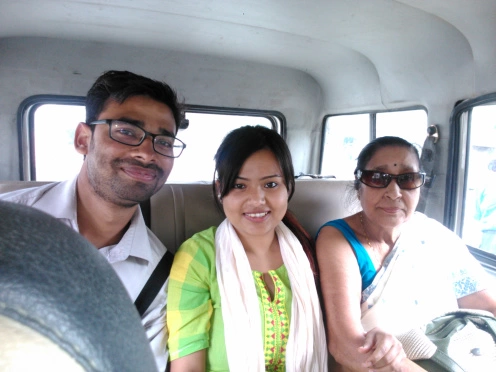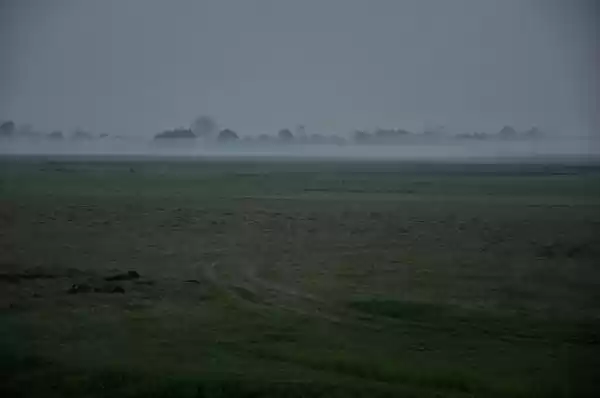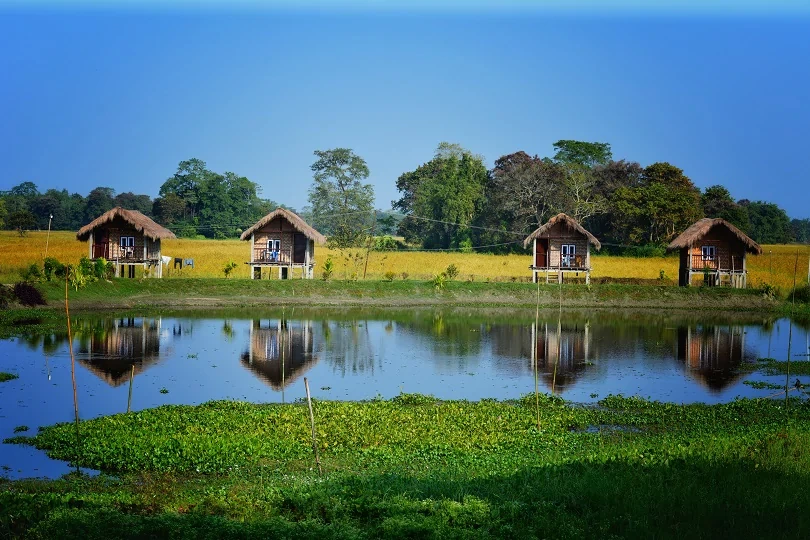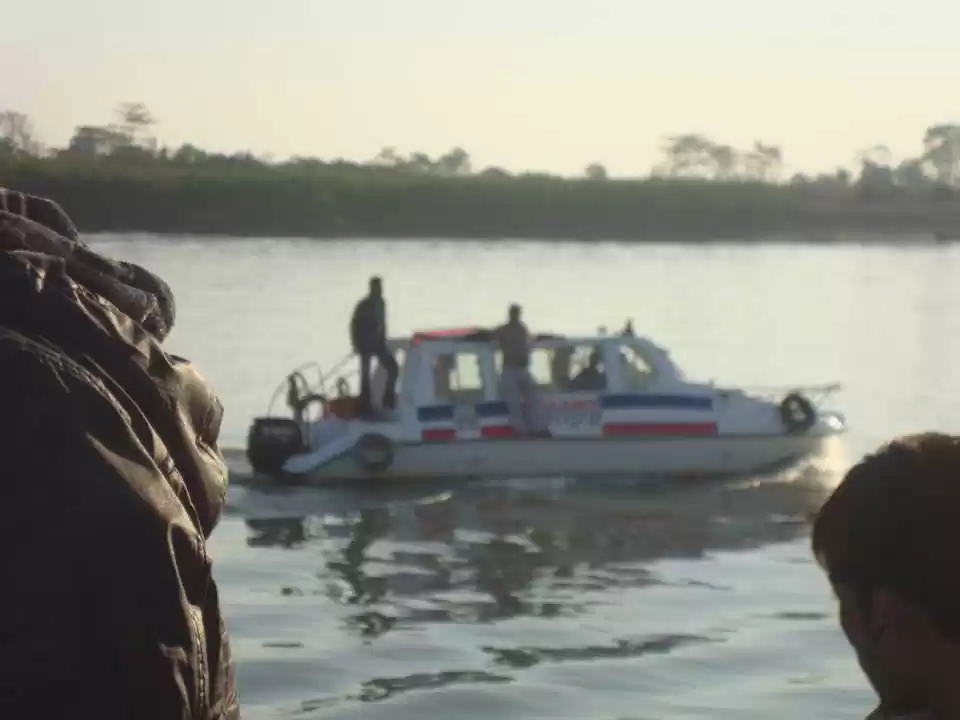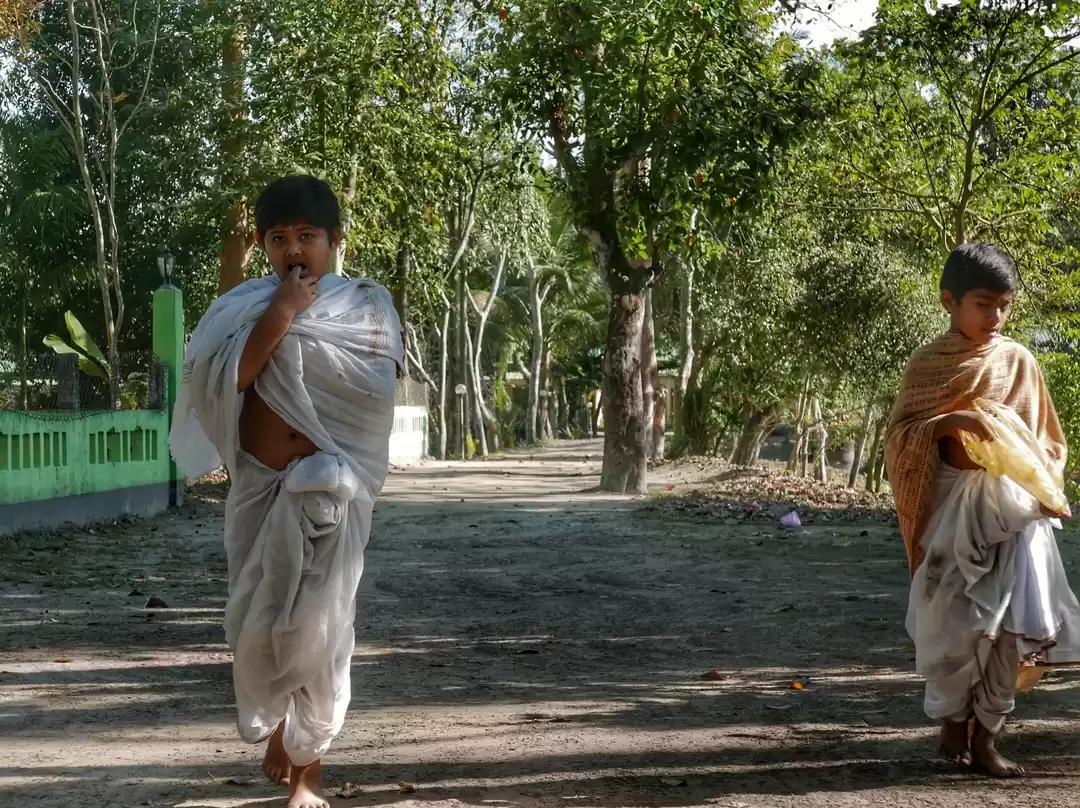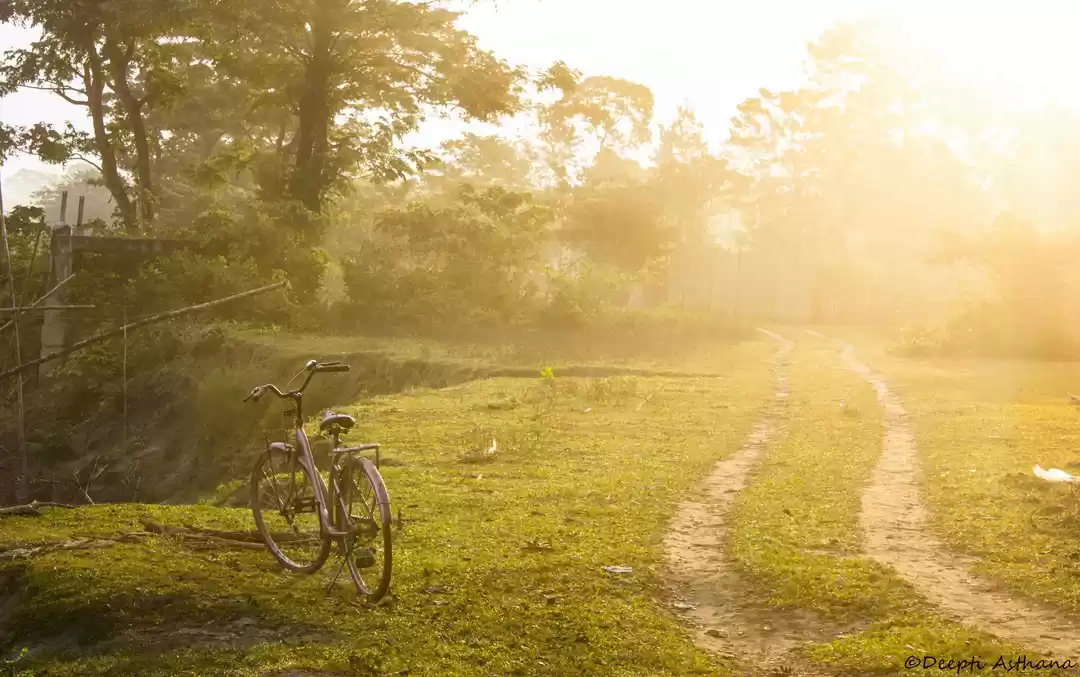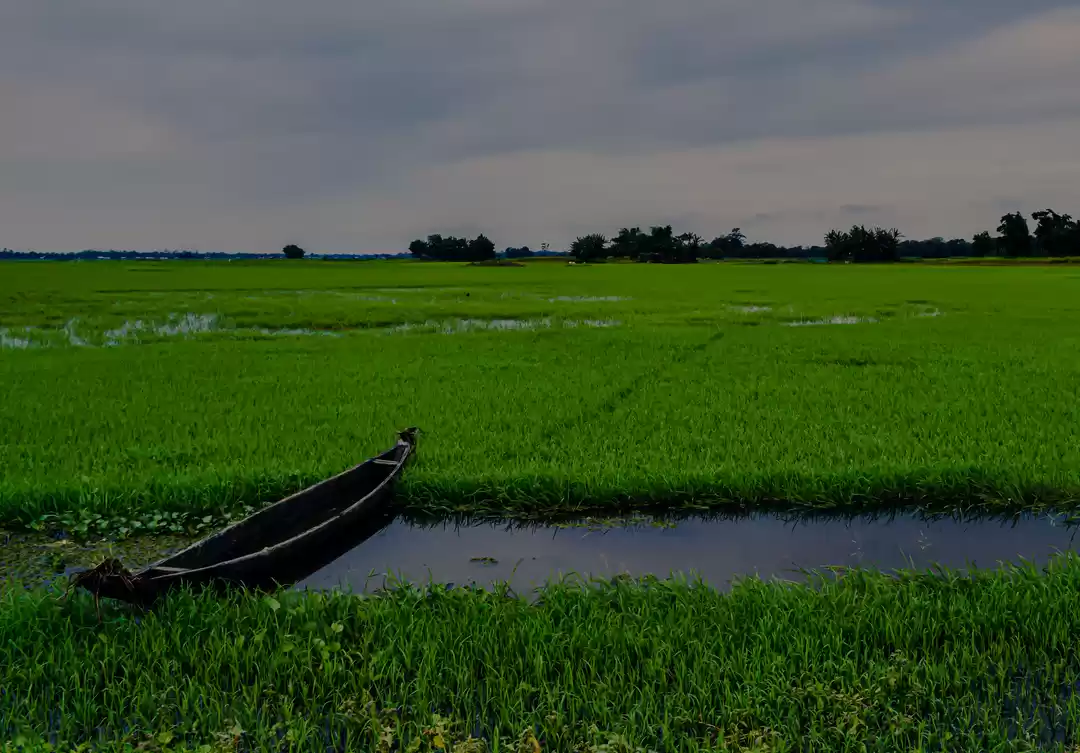
Barpeta kirtan ghar: The Barpeta district is Assam is known as the city of satras (satra-nogori). Satras are the monastic institution established by Mahapurush Srimanta Sankardeva and his disciples to propagate ne0-vaishnavite form of Hinduism (Ekasarana Dharma). The Barpeta Satra, located in the central part of Barpeta town, is renowned for its historical significance and is recognized as a pivotal center for the spread of Neo-Vaishnavism in lower Assam.
WHAT IS BARPETA SATRA FAMOUS FOR?
Barpeta Satra holds a distinguished reputation as the epicenter of Vaishnavite culture in Assam, playing a pivotal role in shaping the spiritual and cultural landscape of the region. This revered institution is particularly renowned for its annual Holi festival, drawing visitors from across Assam who seek a unique and enriching cultural experience. The spiritual ambiance of Barpeta Satra is further accentuated by its distinctive practices, including ‘palnam‘ (sacred congregational chanting), ‘nam prasanga‘ (devotional singing), ‘bhaona‘ (traditional Assamese plays), and ‘borgeet‘ (devotional songs).
HISTORY OF ESTABLISHMENT
In the year 1504 CE, Madhavdev, a great disciple of Sankardeva, was at Sundaridiya (a place near Barpeta) continuing his mission to spread vaishnavite movement. Due to some reasons, Madhavdev decided to leave Sundaridiya to go to Bhawanipur satra and preach from Bhawanipur. Gopal Tanti (later on known as Mathuradas Burha Ata), however came to about Madhavdev’s plan and requested him to go to Tantikuchi (old name of Barpeta) instead of Bhawanipur. Gopal Tanti’s uncle Ram Laruwa Burha gifted a piece a land to Madhavdev to establish a kirtan ghar (a place of worship). The first kirtanghar at Barpeta was designed to be 180 ft. length and 90 ft. breadth
Within a very short time span, this satra became the centre place for spiritual upliftment on the one hand and also a unique institution for practicing art and culture on the other hand.
DESTRUCTION OF ORIGINAL KIRTAN GHAR AND BUILDING A NEW SATRA
In 1594, the Barpeta Satra dwelling was unexpectedly consumed by a forest fire. During this calamity, Gopal Tanti was away in Bhawanipur. Upon his return, Gopal was overwhelmed with grief and sorrow. Seeking solace, Gopal approached Madhavdev, who was at Bhela Doba at that time. Encouraged by Madhavdeva, Gopal underwent a transformative experience, and his name was changed to Mathura Das Burha Ata. He was appointed as the first adhikara of Barpeta Satra. He then returned to Barpeta and diligently revitalized the satra on its scorched foundations. In 1595 A.D., he was formally crowned as the satradhikar (head of satra) of Barpeta Satra on the tithi (death anniversary) of Sankardeva.
TRAGIC FATE OF BARPETA SATRA
The kirtanghar reconstructed by Mathuradas Burha Aata was again burnt by fire and it was built again in 1828 AD. During the earthquake in 1897 AD it was again destroyed. In 1908-09 AD, it was rebuilt and the present construction was completed in 1962 AD.
IMPORTANT PLACES INSIDE BARPETA SATRA COMPLEX
Barpeta Satra Complex consists of different parts like Kirttanghar (Prayer house), Bhajghar or Manikut (Sanctorum), Paatchang ( a raised wooden platform), Khatkhati (Staircase), Uddyan (Garden), Mathura Das Burha AtarBhithi (Residence of the first Satradhikar), Math, Mathar chotal (Courtyard of Math), Keolar baha (Residence of Bhakats/Monks), Office of the Management Committee, Rangamancha (Stage), Sabha Ghar (Meeting Hall), Deul, Jagmohan greeha, Satriya Samaskriti Prashikshan Vidyalaya (Cultural School), Badla Atar Bhithi (Residence of Badla Ata), Atithishala (Guest House),Bhagavata Kendra, Health Centre, Southern Gate, Northern Gate, Puthibharal (Library), office, Dalan (main gate), Rangiyal flower (Flamboyant flower) Garden, Shri Ram Atarbhithi (Residence of Ram Ata) and one small zoo comprised of deer and peacock. The Sattra compound covers approx 20 bighas of land.
The Barpeta Satra complex is surrounded by walls and there are three gates to enter the complex. The west gate also known as Dalan is the main gate for the tourists and visitors to enter Barpeta Satra.



